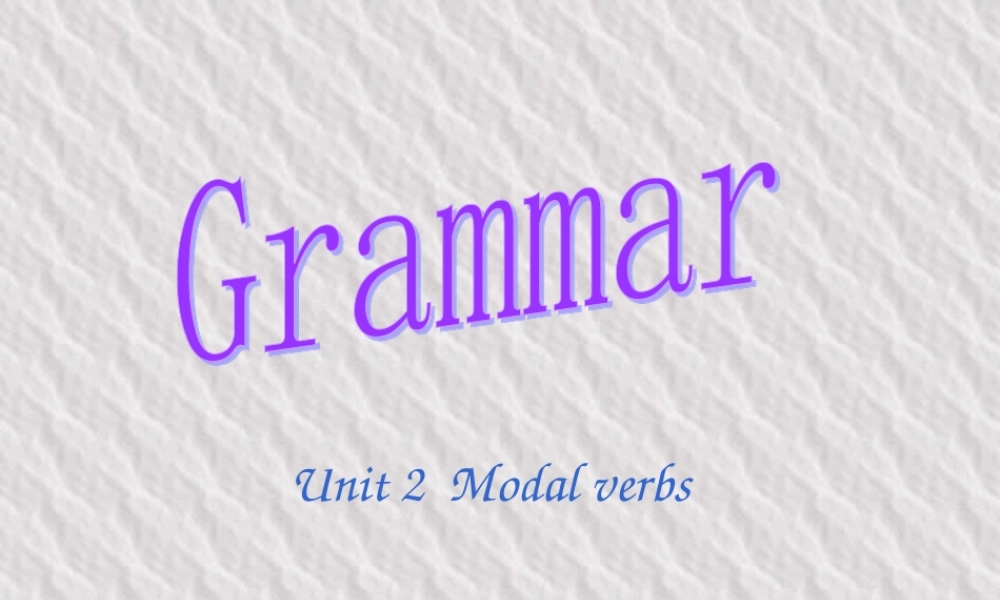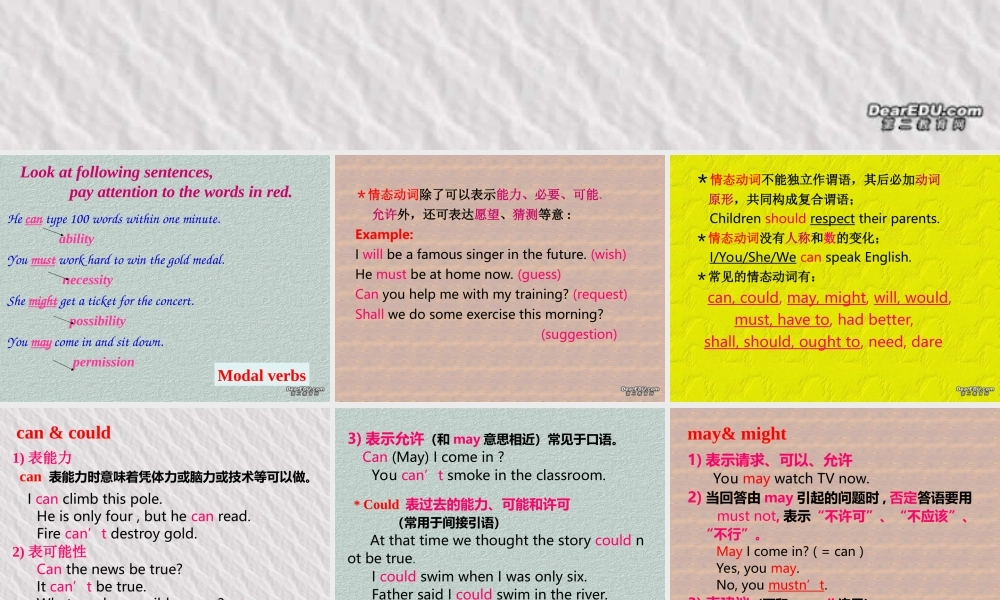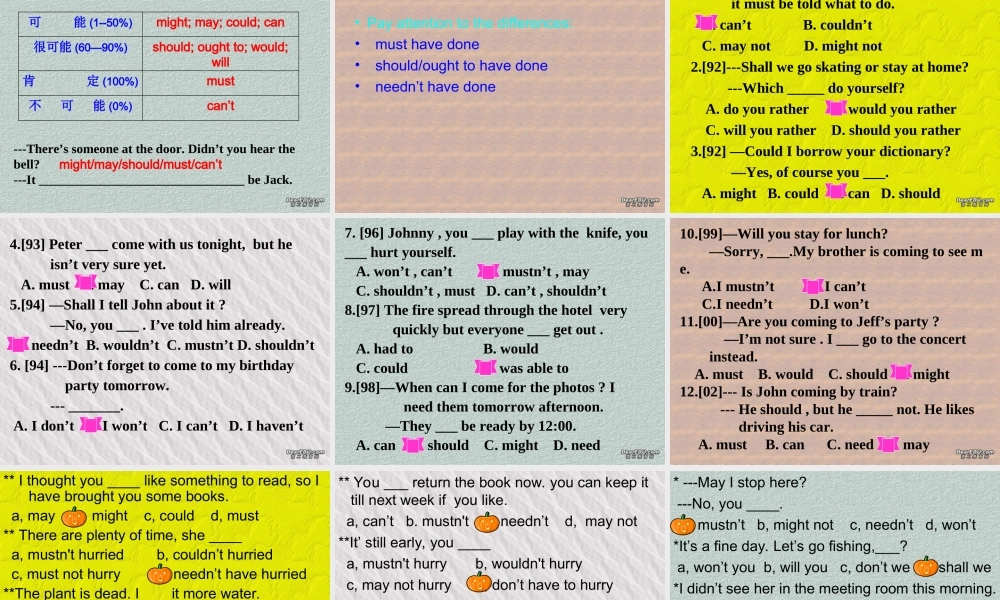Unit 2 Modal verbsHe can type 100 words within one minute. abilityYou must work hard to win the gold medal. necessityShe might get a ticket for the concert. possibilityYou may come in and sit down. permissionLook at following sentences, pay attention to the words in red.Modal verbs*情态动词除了可以表示能力、必要、可能、 允许外,还可表达愿望、猜测等意 :Example:I will be a famous singer in the future. (wish)He must be at home now. (guess)Can you help me with my training? (request)Shall we do some exercise this morning? (suggestion)*情态动词不能独立作谓语,其后必加动词 原形,共同构成复合谓语; Children should respect their parents.*情态动词没有人称和数的变化; I/You/She/We can speak English.*常见的情态动词有: can, could, may, might, will, would, must, have to, had better, shall, should, ought to, need, dare can & could1) 表能力 can 表能力时意味着凭体力或脑力或技术等可以做。 I can climb this pole. He is only four , but he can read. Fire can’t destroy gold. 2) 表可能性 Can the news be true? It can’t be true. What can he possibly mean? 3) 表示允许(和 may 意思相近)常见于口语。 Can (May) I come in ? You can’t smoke in the classroom. * Could 表过去的能力、可能和许可 (常用于间接引语) At that time we thought the story could not be true. I could swim when I was only six. Father said I could swim in the river. may& might 1) 表示请求、可以、允许 You may watch TV now. 2) 当回答由 may 引起的问题时 , 否定答语要用 must not, 表示“不许可”、“不应该”、“不行”。 May I come in? ( = can ) Yes, you may. No, you mustn’t. 3) 表建议(可和 as well 连用) You may as well stay where you are. might 1) 在间接引语中表过去的“可能”和“允许” She said that he might take her dictionary. *除在间接引语中外, might 一般不表示过去的“可能...




